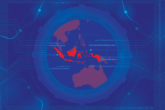August 14, 2019
Why Are Deepfakes So Effective?
It's because we often want them to be true.
Public opinion shifts, skewed election results, mass confusion, ethnic violence, war. All of these events could easily be triggered by deep fakes—realistic seeming but falsified audio and video made with AI techniques. Leaders in government and industry, and the public at large are justifiably alarmed. Fueled by advances in AI and spread over the tentacles of social media, deep fakes may prove to be among the most destabilizing of forces humankind has faced in generations.
It will soon be impossible to tell by the naked eye or ear whether a video or audio clip is authentic. While propaganda is nothing new, the visceral immediacy of voice and image give deep fakes unprecedented impact and authority; as a result, both governments and industry are scrambling to develop ways to reliably detect them. Silicon Valley startup Amber, for example, is working on ways to detect even the most sophisticated altered video. You can imagine a day when we can verify the authenticity and provenance of a video by way of a digital watermark.
Developing deep fake detection technology is important, but it's only part of the solution. It is the human factor—weaknesses in our human psychology—not their technical sophistication that make deep fakes so effective. New research hints at how foundational the problem is.
After showing over 3,000 adults fake images accompanied by fabricated text, a group of researchers reached two conclusions. First, the more online experience and familiarity with digital photography one had, the more skeptical the person evaluating the information was. Second, confirmation bias—the tendency to frame new information to support our pre-existing beliefs—was a big factor in how people judged the veracity of the fake information.
Read the full article in Scientific American.
More from CNAS
-
Siliconsciousness: The AI Competition: Public Policy Strategies: Part 1
This episode comprises the first part of our special event, “The AI Competition: Public Policy Strategies”. The event, co-hosted by MIT Technology Review, brings together some...
By Dr. ED McGrady
-
How Drones in Ukraine Are Reshaping War
Samuel Bendett, a senior adjunct fellow at the Center for a New American Security, joins The Cipher Brief to discuss the current situation of drones being used in Ukraine.Watc...
By Samuel Bendett
-
Countering the Digital Silk Road: Indonesia
This year marks the 10th anniversary of the Digital Silk Road (DSR), China’s ambitious initiative to shape critical digital infrastructure around the world to advance its geop...
By Vivek Chilukuri & Ruby Scanlon
-
How Secure Is America’s AI Advantage?
https://www.youtube.com/watch?v=7njJkH7XRa8...
By Paul Scharre



